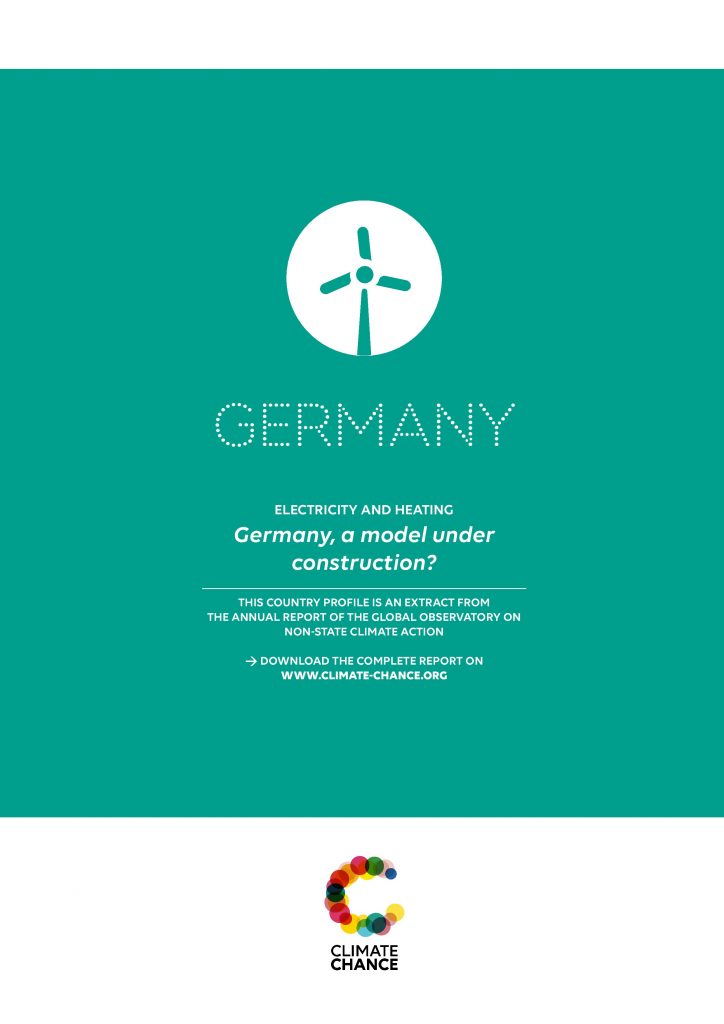Germany • A model under construction?
At the turn of the 2000s, Germany embarked on a transformation of its electricity production that is still ongoing today

Introduction
At the turn of the 2000s, Germany embarked on a transformation of its electricity production that is still ongoing today. While the fight against climate change requires rapid decarbonation of the overall electricity mix, the energy transition led by the world’s fourth largest economy is one of the few large-scale experiments which can be used as a model.
Contents
1 • The evolution of the green electricity sector
Downward-oriented issues
A remarkable evolution of the electricity mix
2 • A strong political impulse
Building an alternative and a consensus
Post-Fukushima
3 • The role of civil society and sub-national actors
Citizens, communities, NGOs … The role of local initiatives
Intense academic activity
Seeking alliances with economic actors
4 • New challenges
Towards the end of coal
The problem of changing the scale of energy decentralisation
Conclusion
It is now very likely that Germany will complete the replacement of all its nuclear production by renewable energies in 2022, thus completing a transformation of its electricity mix that was planned at the end of the 1990s. But this success is but a first step: to honour its climate commitments, Germany must now commit to exiting from coal. If it manages to do this, it will show that its method is replicable, thus reinforcing its ambitious energy policy model based on consensus and leaving a large space for civil society.


